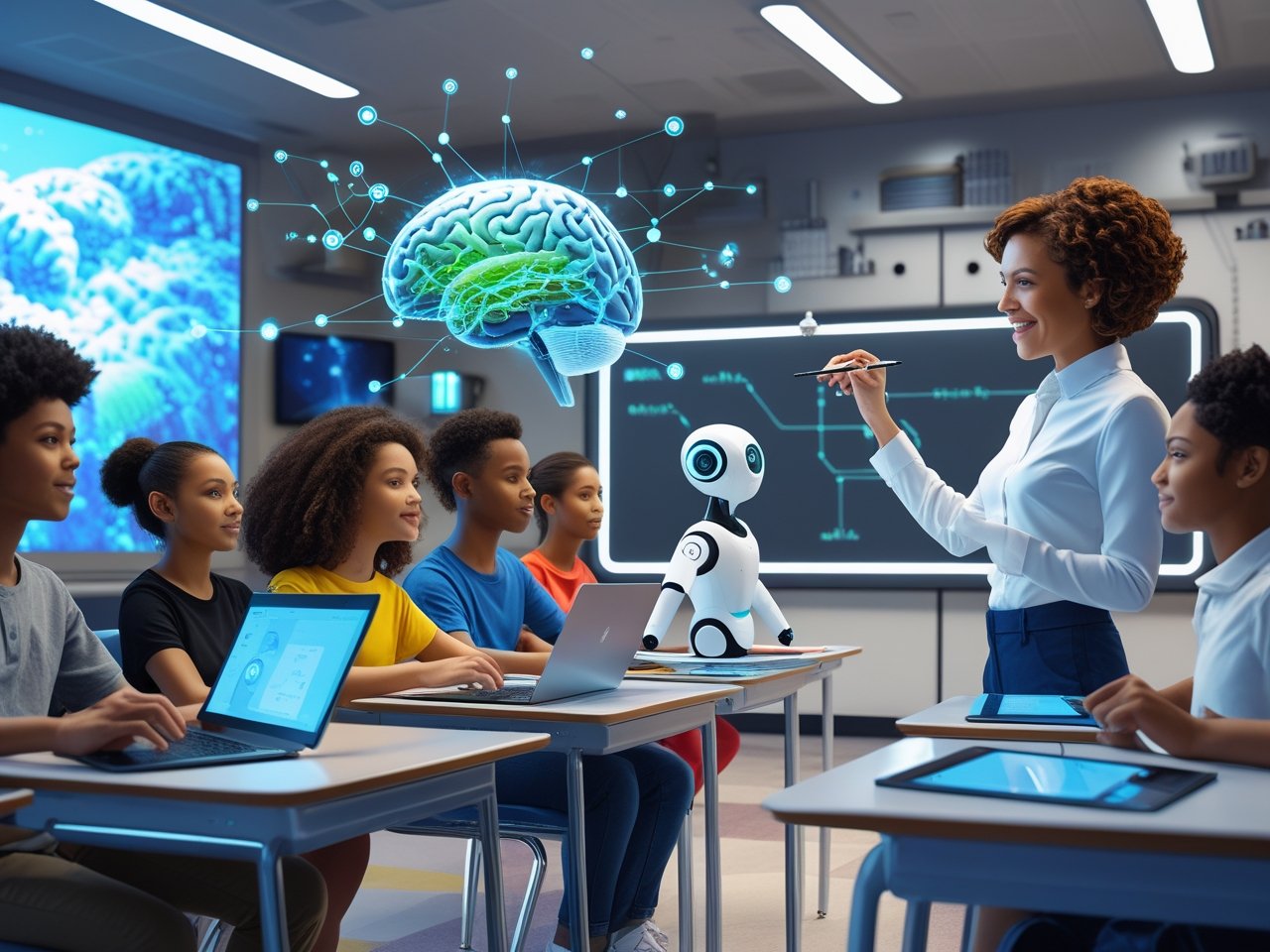AI in education is reshaping studying through enhancing student engagement, allowing personalized getting to know, and paving the way for innovative coaching strategies. As academic establishments include virtual technologies, AI plays a pivotal position in reshaping how college students analyze and how educators educate. This article delves into the profound impact of AI in training and How it is reshaping studying.
The Role of AI in Student Engagement
AI has revolutionized the manner college students engage with instructional content material. By providing dynamic and interactive mastering reviews, it maintains college students engaged and influenced.
Gamification and Interactive Learning: AI-powered platforms like Duolingo and Kahoot! Combine gamification into training, making gaining knowledge of more enjoyable and interactive. These structures use AI to evolve the problem level primarily based on a student’s development, making sure a balanced assignment.
Real-Time Feedback: AI gear offer on the spot remarks on assignments, quizzes, and sports. For instance, equipment like Gradescope analyze college students’ submissions and highlight regions for improvement, helping them cope with mistakes right away.
Enhanced Collaboration: AI fosters collaboration via virtual school rooms and intelligent discussion boards. Students can interact with peers globally, gaining numerous views whilst AI moderates and courses discussions.
Personalized Learning with AI
Personalized gaining knowledge of is one of the most significant advantages AI brings to schooling. By studying individual mastering patterns and choices, AI tailors academic content material to meet each scholar’s unique wishes.
Adaptive Learning Platforms: Platforms like Khan Academy and Coursera appoint AI algorithms to music a scholar’s progress and advocate tailored content. These systems pick out strengths and weaknesses, ensuring students attention on areas that want improvement.
Virtual Tutors: AI-pushed virtual tutors like Squirrel AI provide one-on-one help, mimicking the enjoy of getting a non-public teach. These structures use natural language processing to answer questions and give an explanation for concepts in easy terms.
Support for Diverse Learning Needs: AI-powered equipment assist college students with disabilities by means of supplying text-to-speech, speech-to-text, and other accessibility functions. This inclusivity guarantees that all college students have equal possibilities to excel.
The Future of Education with AI
As AI keeps to evolve, its capability to revolutionize education grows exponentially. Here are a few rising developments:
Immersive Learning Experiences: Combining AI with augmented truth (AR) and digital truth (VR) creates immersive learning environments. Students can discover historic events, conduct digital technological know-how experiments, or practice real-global abilities in simulated settings.
Predictive Analytics: AI enables predictive analytics to identify at-hazard college students and propose timely interventions. Educators can use this records to design techniques that enhance pupil retention and success quotes.
Automated Administrative Tasks: AI streamlines administrative techniques which includes grading, attendance monitoring, and scheduling, allowing educators to consciousness extra on coaching and mentoring.
Challenges of Integrating AI in Education
While the advantages of AI in schooling are tremendous, its implementation comes with challenges:
Cost and Accessibility: High prices of AI technologies can limit their accessibility for underfunded faculties and institutions in growing regions.
Data Privacy Concerns: AI is based closely on statistics series, raising issues approximately student privacy and statistics security. Establishing sturdy rules is essential to deal with these issues.
Resistance to Change: Adapting to AI-driven methods calls for a shift in mind-set for educators and college students. Proper training and awareness packages are essential for a success adoption.
AI is undeniably remodeling the academic landscape through fostering student engagement, personalizing learning experiences, and streamlining academic approaches. While challenges exist, the benefits some distance outweigh the drawbacks, making AI a useful asset in shaping the future of schooling. By embracing AI responsibly, educators can create inclusive, progressive, and effective mastering environments that put together college students for the needs of the twenty first century.
Hope this article covers the query “AI in Education and the way it’s reshaping getting to know”!!!







